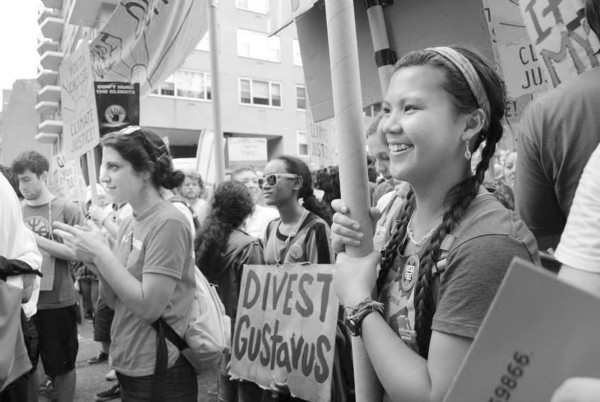There are two paces to organizing for change: the speed with which our systems are collapsing and the slow intentional time that is necessary for deep movement building.”
Civil rights organizer and wise woman, George Friday once said those words and in today’s fast-paced, got-to-be-doing-something-otherwise-we’re-not-productive mentality, there is a harsh truth revealed in those words. This is our reality. A sense of urgency is the unavoidable companion of crisis. Movements for racial equity, climate and environmental justice, peace, equal opportunity, consent culture, whatever it may be, demand immediate attention and response. This is where we are right now.
We are hurried and rushed to create solutions and make decisions because of the injustice, oppression, and environmental degradation we are seeing, learning about, and experiencing. Often times, the more we know about a topic, issue, or situation, the more urgent we become. Sometimes it’s the opposite experience for other individuals. They learn and see, yet are nervous about what they should do. They become anxious about where to even begin and what that looks like for them, individually and collectively.
There are many broad base “change makers” at Gustavus. Let us open up the scope of who those people and groups are. Let us transcend the notion of what an “activist” is. I would argue that a majority of the people here at Gustavus and beyond want to make some sort of a positive impact and/or take action and contribute to their communities. And while it’s a common understanding of activism, it is not just the individuals and groups who are protesting in the streets.
While that is important, it’s the educators in our rooms who do things a little differently who are also activists, empowering each student to find his or her voice. It’s the musicians in our world who write music, that connects with our souls. It’s the theatre that engages us to rehearse the revolution and provoke images that words could never describe. It’s also organizers who are on-the-ground mobilizing communities to stand for change. It’s people who just take the time at meals to ask what’s up in your life and support you in nourishing your being. Let us begin to notice these individuals, everywhere in our life as agents of change.
What are the ways we live out our commitment to a better Gustavus and an even better world? From our early years, we’ve been conditioned to prioritize multitasking and constant “doing” as a measure of our fundamental self worth. So many social norms and school climates keep us all focused in these fast-paced lifestyles. We have to do something now! If our concern and love isn’t translated into immediate action, it will seem as if we don’t care.
Rev. Dr. Jamie Washington gave this year’s Martin Luther King Jr. Memorial Lecture at Gustavus and he spoke about living the legacy of MLK. A huge aspect of living the legacy of MLK in the 21st century, and beyond, is taking the time to understand your impact on an individual or group vs. explaining your intentions of what you intended your actions or words to mean. We proceed full force, agenda in hand, shoving people out of the way, ignoring emotions and behaviors.
From our early years, we’ve been conditioned to prioritize multitasking and constant “doing” as measures of our fundamental self worth.
An example I’ve been thinking about a lot is the loud voices of privilege, who claim to “get it” and stand for equity, equality, etc., yet dominate spaces and overshadow voices of the historically marginalized.
Where do we want to go from here? This fast-pace lifestyle, which has become an accepted reality for many of us, places little to no value on slow time. I’m not proposing the end all, be all, yet it’s worth giving ourselves time to think intentionally about the people involved in the process of change. What is slow time? The kind of time needed for the constant transition into a just, fair and sustainable society. The kind of time needed for healing. The kind of time needed for widening and deepening a collective movement for change.
Change is not just about the end result we get. It’s not just what we do, but how we do it; the journey, the processes and time it takes to get us there.
The deep transformational work we need both personally and politically must be rooted in intersectionality. Kimberele Crenshaw coined this term and the theory, which is the study of how different types of discrimination, oppression and power interact. An example of demonstrating intersectionality can be examined through an issue like environmental justice and racial justice.
How in the world is the environment connected to racial justice? The concept is not new. This is exactly what last year’s Building Bridges Conference focused on: “Disposable Communities? Demanding Environmental Justice.” Much of the environmental degradation happens in low-income, and often times communities of color, which leads to higher contamination of water and health risks in those communities.
Intersectionality is about bringing who we are, the identities we hold and the history that binds our background together and actively “doing the work” everyday, seeking ways to blend that into the spaces, which we organize, live, learn, play and work in; the larger movements for change. This is what will sustain us and commit us to live lives of justice. The month of March will begin personal reflections and writings diving in deeper of the principle and practice of intersectionality in our everyday life.
-Nicole Ektnitphong
